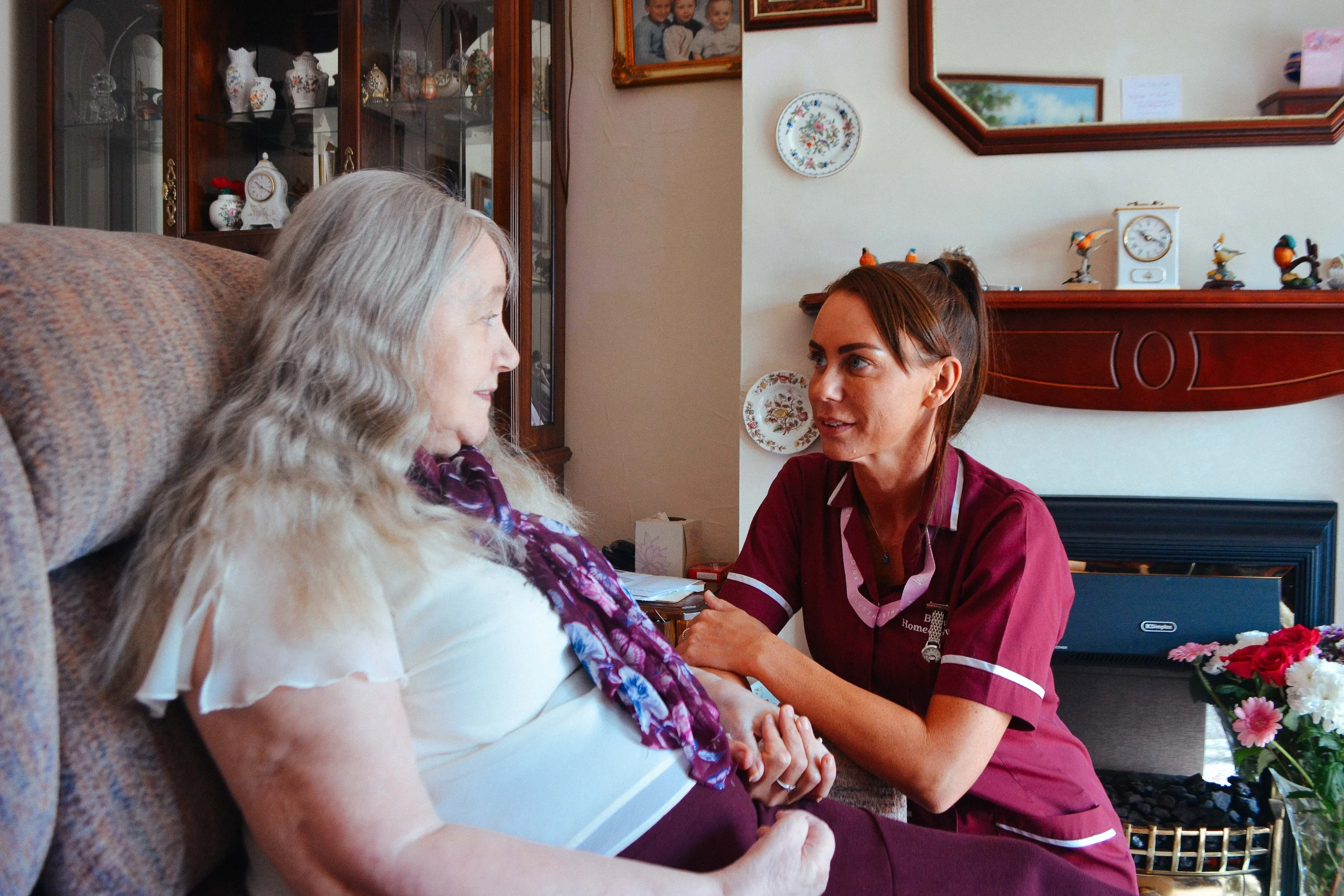Guide to Care
What is Care?
Care can be provided for anyone who has a disability, illness, elderly or vulnerable. Care can be provided by professionals, family members or friends. Receiving care is completely normal and there are lots of different options available to assist with any needs. These can include, but not limited to;
Home care - This is where carers come into your own home, to provide support and care in the comfort of your own surroundings. This can include personal care, housework support and companionship.
Live in care - Where carers move in to your home, providing 24/7 care for those who need it, including personal care, housework support and companionship.
Companionship - This is where no personal care is involved, just a friendly face in the comfort of your own home and maybe to enjoy some trips out.
Supported living - This is where you would move into a home where support and care is provided for you.
Care Home - This is where you would move into a care home for your care.
How to get started?
The first step would be to contact your local Council, if you explain your situation they will arrange a free of charge Needs Assessment for you. The Needs Assessment is carried out to to look at your current living arrangements, what things you may be struggling with, how you feel you need support and if you are currently getting any help from anyone, professional or family/friends.
You may also be referred for a Needs Assessment by a healthcare professional if they deem it to be appropriate.
Free services and support
The Council can provide certain things free of charge if after their assessment they decide that you are in need of it. This can include home adaptations or equipment that cost less than £1000 each. They can also provide you with options for help from carers who come to your home or if you would benefit by going to a day centre service.
What happens if I am in need of care?
If after your assessment you are in need of care, a Financial Assessment will then be carried out. This again is free of charge and is used to figure out if you are entitled for the Council to pay for your care, or if they will help by contributing partially, or alternatively if you will have to pay for care yourself. The financial assessment is determined by your income, savings and assets, but your main property will not be included. The Council will not be able to help with the cost of your care if you have savings worth more than £23,250. Depending on which Council you are under, they will take into consideration things like benefits, pensions etc.
Council funding
If The Council are going to pay/contribute to your care, you will get a personal budget that can either be provided by one of 3 options. This can include either a direct payment going directly in to your bank account for you to pay, or the Council can pay your provider directly or alternatively a third party organisation can manage your personal budget for you.
Self funding
If you are not entitled for any funding from the Council, you can arrange and pay for your own care yourself. A typical rate for a Carer to come to your home is around £20-£35 and this can vary depending on where you live what type of care you require
Which care company should I go for?
There are many different ways you can find the perfect provider for you.
You can get a list of companies from your Local Council
You can contact the UK Homecare Association for any recommended companies
You can look at the CQC (Care Quality Commission) website for a list of registered companies
Search online yourself, either by using google or websites like homecare.co.uk
Recommendations from people you know, family or friends.
You should always call and make sure you the company you are thinking of can provide all the support you need, their costs and ensure that all your questions are answered before making a decision.
What happens next?
As soon as you have decided on which care company you are going for, they should come out to see you to do their own Needs Assessment to ensure you are happy with the care tat you require and that they can provide. Once this has been completed they should create a care Plan outlining everything and all information about yourself. This should be renewed every year, unless things change before that period of time.
You should always be happy with your care provider, if not you are able to change to ensure you are receiving exactly the care you should be getting.
Useful contact details
There are many useful contacts and organisations that can assist you with any queries.
CQC - 0300 061 6161
Age UK - 0800 169 6565
Uk Homecare Association - 020 8661 8188





